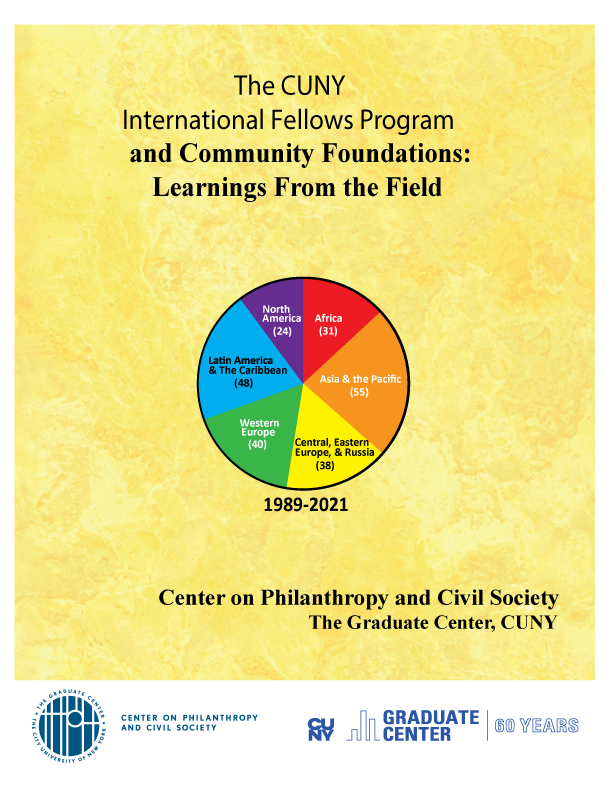When the CUNY International Fellow Program made its debut in 1989, the new crop of U.S.- based centers on philanthropy and nonprofits was still in its infancy and only one, at Johns Hopkins University, was working on global nonprofit trends. The Center on Philanthropy and Civil Society (CPCS) at CUNY’s Graduate Center adopted non-U.S. philanthropy as one of its three major areas of activity from the outset, despite naysaying observers who viewed it as a barren field.
Philanthropy still seemed like a uniquely American brand. Little was known about giving and voluntarism outside the United States, even for countries with far longer traditions such as
Turkey and Egypt. The globalization of modern philanthropy and the community foundation movement were still far over the horizon. Although the previous decade had witnessed an upsurge of social activist and development NGOs around the world, philanthropic practices were still under the radar. Most non-U.S. foundations were operating foundations with relatively low profiles, and grantmaking was relatively rare.
That changed dramatically in the intervening decades. Today, community foundations (CFs) are a worldwide phenomenon and the globe is laced with local, national and international infrastructure organizations that serve them and the sector as a whole. Moreover, the CUNY Fellows have played a significant role in helping to develop CFs and modern philanthropy around the world, creating a global community.
Read the full report at the link City University New York-Intl-Fellows-Program-Community-Foundations-Learnings-from-the-Field copy


